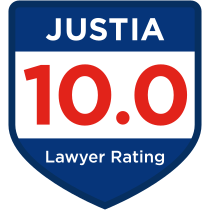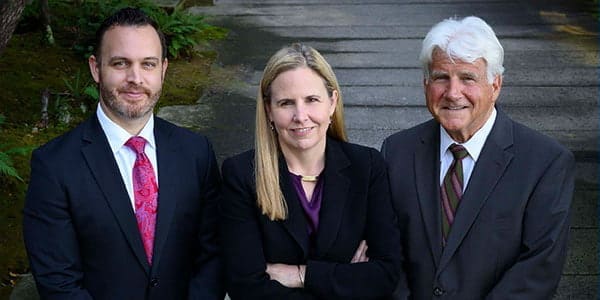Rideshare services like Uber and Lyft make travel in Mountain View convenient, but when accidents happen, victims quickly learn these cases are far more complicated than typical car crashes. Liability questions, multiple insurance policies, and corporate defendants with vast resources often make recovery difficult.
Passengers, other drivers, pedestrians, and cyclists injured in these accidents face complex issues tied to driver status, insurance limits, and company policies. Careful investigation is required to identify all responsible parties and secure full compensation.
Under California law, you have only two years from the accident date to file a lawsuit. That’s why quick action matters. At Galine, Frye, Fitting & Frangos, our Mountain View rideshare accident attorneys will fight for your rights.
Mountain View Rideshare Accident Guide
- Key Takeaways
- Why Hire Our Mountain View Rideshare Accident Law Firm
- Understanding Rideshare Accident Compensation
- Common Causes of Rideshare Accidents in Mountain View
- Where Rideshare Accidents Happen Most in Mountain View
- Types of Rideshare Accident Injuries We Handle
- Fighting Rideshare Companies and Insurance Carriers
- What to Do After a Rideshare Accident
- Getting Justice After Your Mountain View Rideshare Accident
- Frequently Asked Questions
Key Takeaways
- Rideshare accident liability depends on the driver's status when the accident occurred
- Multiple insurance policies may apply with different coverage levels and requirements
- Rideshare companies maintain substantial insurance coverage for accidents during active rides
- Corporate policies and driver training issues may create additional liability beyond insurance
- Mountain View's tech industry creates unique rideshare usage patterns and accident risks
- Our rideshare accident lawyers focus on serious injury cases requiring extensive resources
- Early investigation is key for determining insurance coverage and preserving evidence
Why Hire Our Mountain View Rideshare Accident Law Firm

Rideshare accidents are rarely simple. Insurance coverage shifts depending on whether the driver is waiting for a passenger, en route, or completing a ride, making these cases far more complex than standard car accidents. Companies like Uber and Lyft also have significant legal resources, which can make it difficult for victims to secure fair compensation without experienced legal help.
At Galine, Frye, Fitting & Frangos, our Mountain View rideshare accident lawyers combine deep knowledge of insurance structures with a strong record of helping seriously injured clients recover. Our team has successfully handled complex cases involving multiple insurers, corporate defendants, and catastrophic injuries. Clients consistently praise our thorough investigations, personal attention, and commitment to achieving results that make a difference in their recovery.
We carefully review every detail—driver status, app data, company policies, vehicle condition, and maintenance history—to uncover negligence and strengthen your case. Our multilingual team (Spanish, Greek, and Chinese) ensures clear communication with victims, witnesses, and drivers, providing an advantage in investigations.
Most importantly, we care about your healing and financial security. You can call us today at (650) 345-8484. You’re never far from the legal assistance you need.
Understanding Rideshare Accident Compensation
The financial impact of a rideshare accident often depends on the driver’s status at the time and the insurance coverage that applies. Our Mountain View rideshare accident attorneys know how to navigate Uber and Lyft's complex insurance structures.
These cover different levels of protection depending on whether a driver is available, has accepted a ride, or is transporting a passenger. This knowledge is critical for securing the maximum recovery available.
Rideshare companies carry up to one million dollars in commercial coverage during active rides, but coverage is lower when a driver waits without a passenger. If the driver is not using the app, personal insurance may apply. Determining whether the policy applies requires careful review of app logs, GPS data, and driver activity.
Serious injuries like brain trauma or spinal damage often create medical costs far beyond standard auto policy limits. Lost earning capacity can also be significant in Mountain View, where many victims work in high-paying tech roles.
Our firm works with economists to measure these losses. Finally, pain and suffering damages reflect both physical harm and the emotional impact of being injured while trusting rideshare services for safe travel.
Common Causes of Rideshare Accidents in Mountain View

Driver inexperience and inadequate training contribute to rideshare accidents when companies fail to provide sufficient preparation for drivers unfamiliar with commercial passenger transportation. Unlike taxi drivers, who typically receive extensive training, rideshare drivers often begin working with minimal preparation. This leads to accidents when they encounter challenging traffic situations or passenger-related distractions they haven't been trained to handle safely.
GPS navigation and smartphone distraction create significant hazards when rideshare drivers rely heavily on mobile applications for navigation, passenger communication, and ride management while driving through Mountain View's complex traffic patterns. The constant interaction with smartphone screens diverts attention from driving tasks. It can lead to accidents when drivers miss traffic signals, fail to notice pedestrians or make navigation errors while looking at their devices.
Unfamiliar routes and destinations contribute to rideshare accidents when drivers accept rides to locations they don't know well, leading to sudden lane changes, missed turns, or confusion at complex intersections. Mountain View's rapidly changing landscape, with ongoing construction projects and frequent road modifications, creates additional challenges for drivers who may not be familiar with current traffic patterns and road conditions.
Vehicle maintenance and safety issues arise when rideshare drivers use personal vehicles that may not receive the regular maintenance and safety inspections required for commercial passenger service. Unlike taxi fleets with professional maintenance programs, rideshare vehicles depend on individual drivers to maintain their cars properly, leading to accidents when brake failures, tire problems, or other mechanical issues occur.
Passenger pickup and drop-off hazards create unique accident risks when rideshare drivers stop in traffic lanes, make illegal U-turns, or double-park while loading or unloading passengers. The pressure to complete rides quickly and maintain high ratings can lead drivers to make unsafe decisions about where and how to pick up passengers, particularly in busy areas near tech company campuses or entertainment districts.
Where Rideshare Accidents Happen Most in Mountain View
Tech company campuses and business districts generate high concentrations of rideshare traffic as employees use these services for commuting, business travel, and transportation between different company locations. The areas around Google's headquarters complex, other major tech campuses, and business parks see frequent rideshare activity that creates accident risks when drivers navigate heavy traffic while managing passenger pickups and drop-offs.
Downtown Mountain View and Castro Street experience regular rideshare accidents due to the concentration of restaurants, bars, and entertainment venues that attract passengers using these services to avoid driving after consuming alcohol. The narrow streets, pedestrian traffic, and complex parking situations create challenging conditions for rideshare drivers who may be unfamiliar with the area or distracted by passenger interactions.
Caltrain stations and transit hubs represent major rideshare pickup locations where accidents occur when drivers attempt to navigate through areas designed primarily for train passengers rather than vehicle traffic. The Mountain View Caltrain station and surrounding streets see frequent rideshare activity that can create conflicts with pedestrians, cyclists, and other vehicles in spaces not designed for high-volume passenger pickup operations.
Highway access points and major intersections experience rideshare accidents when drivers unfamiliar with local traffic patterns attempt to reach pickup locations or navigate to destinations while following GPS directions. The intersections of major highways like 101 and 237 with surface streets create complex traffic situations where rideshare drivers may make poor decisions while trying to reach passengers quickly.
Types of Rideshare Accident Injuries We Handle

Passenger injuries in rideshare vehicles often result from factors specific to commercial passenger transportation, such as drivers who are distracted by apps, unfamiliar with routes, or operating under pressure to complete rides quickly. Passengers injured in rideshare accidents may have claims against both the rideshare driver and the company, depending on the circumstances and insurance coverage that applies. These cases often involve complex liability determinations based on the driver's status and company policies.
Pedestrian and cyclist injuries caused by rideshare vehicles frequently occur in downtown Mountain View and near transit stations, where these vulnerable road users interact with rideshare drivers who may be distracted by passenger communications or GPS navigation. These accidents often result in severe injuries due to the force differential between vehicles and unprotected individuals, and they may involve multiple insurance policies and liability theories.
Other motorist injuries occur when rideshare vehicles cause accidents with passenger cars, motorcycles, or commercial vehicles due to distracted driving, navigation errors, or unsafe passenger pickup maneuvers. These cases require careful investigation to determine the rideshare driver's status and whether the insurance coverage applies.
Multiple vehicle accidents involving rideshare cars can create complex liability scenarios when rideshare drivers cause chain-reaction crashes or multi-vehicle collisions. These situations often involve multiple insurance companies, complicated fault determinations, and coordination between various parties' legal representatives to ensure proper compensation for all victims.
Wrongful death cases tragically result from some rideshare accidents when crashes prove fatal to passengers, pedestrians, or occupants of other vehicles. These cases involve not only the immediate loss of life but also the enormous impact on surviving family members who must cope with sudden tragedy while navigating complex insurance coverage and liability issues involving corporate defendants.
Fighting Rideshare Companies and Insurance Carriers

Rideshare companies and insurers use aggressive strategies to limit payouts, often arguing that drivers are independent contractors or that coverage doesn’t apply based on driver status. These disputes matter because insurance limits change depending on whether a driver logged in, waited for a ride, or carried passengers during the crash. Proving status requires a detailed review of app logs, GPS data, and driver records.
Corporate liability can also extend beyond insurance if unsafe policies, poor background checks, or a lack of training contributed to the accident. Our team works quickly with technology experts to preserve app data and digital evidence before they disappear, ensuring maximum compensation.
What to Do After a Rideshare Accident
Getting medical attention right after a rideshare accident is essential. Even injuries that seem minor can develop into serious problems later, and having early medical records helps prove the connection between the accident and your injuries. Complete documentation also strengthens your claim with insurance companies.
It’s important to record all details about your trip, including the driver’s name, license number, vehicle information, and pickup and drop-off points. Take screenshots from the rideshare app and save receipts or confirmations. These details help determine whether the insurance coverage applies to your case.
Report the accident to the police and the rideshare company, but avoid giving detailed statements about fault or injuries before speaking with an attorney. Rideshare companies have teams that move quickly to protect their interests, often before victims understand their rights.
Contact our Mountain View rideshare accident lawyers as soon as possible. Early legal help is vital because evidence can disappear quickly, and companies begin building defenses immediately.
Getting Justice After Your Mountain View Rideshare Accident

Rideshare accidents in Mountain View are complex, often involving multiple insurance policies and corporate lawyers working to minimize payouts. Whether you were a passenger, driver, pedestrian, or cyclist, you shouldn’t face these challenges alone.
At Galine, Frye, Fitting & Frangos, we know how to navigate rideshare insurance policies, challenge corporate teams, and secure the compensation you deserve. Call our Mountain View personal injury attorneys at (650) 345-8484 or contact us online for a free evaluation.
Remember, the Statute of Limitations for filing an injury lawsuit in California, is two years. Don’t delay, act today.
Frequently Asked Questions
How much is my rideshare accident case worth?
The value of your case depends on several factors, including your injuries, medical costs, lost income, and which insurance coverage applies. Rideshare companies carry up to one million dollars in coverage during active rides, but less if the driver wasn't transporting a passenger. Our lawyers review all these factors to estimate your case's potential value.
What if the rideshare driver says they weren't working when the accident happened?
This is a common defense tactic to avoid higher insurance coverage. We investigate app logs, GPS data, and driver activity records to prove the driver's status. Even if drivers claim they were "off duty," evidence often shows they were logged into the app or between rides. Our team knows how to gather this digital evidence before it gets deleted.
Can I sue both the driver and the rideshare company?
Yes, you may have claims against both parties depending on the circumstances. The driver can be responsible for causing the accident, while the company may be liable for inadequate training, poor background checks, or policy failures. Having multiple defendants often means more insurance coverage and better chances of full compensation.
What should I avoid saying to insurance companies after a rideshare accident?
Don't admit fault, speculate about what happened, or agree to recorded statements without a lawyer present. Insurance adjusters often try to get victims to say things that hurt their cases later. Stick to facts like the time, location, and injury you suffered.